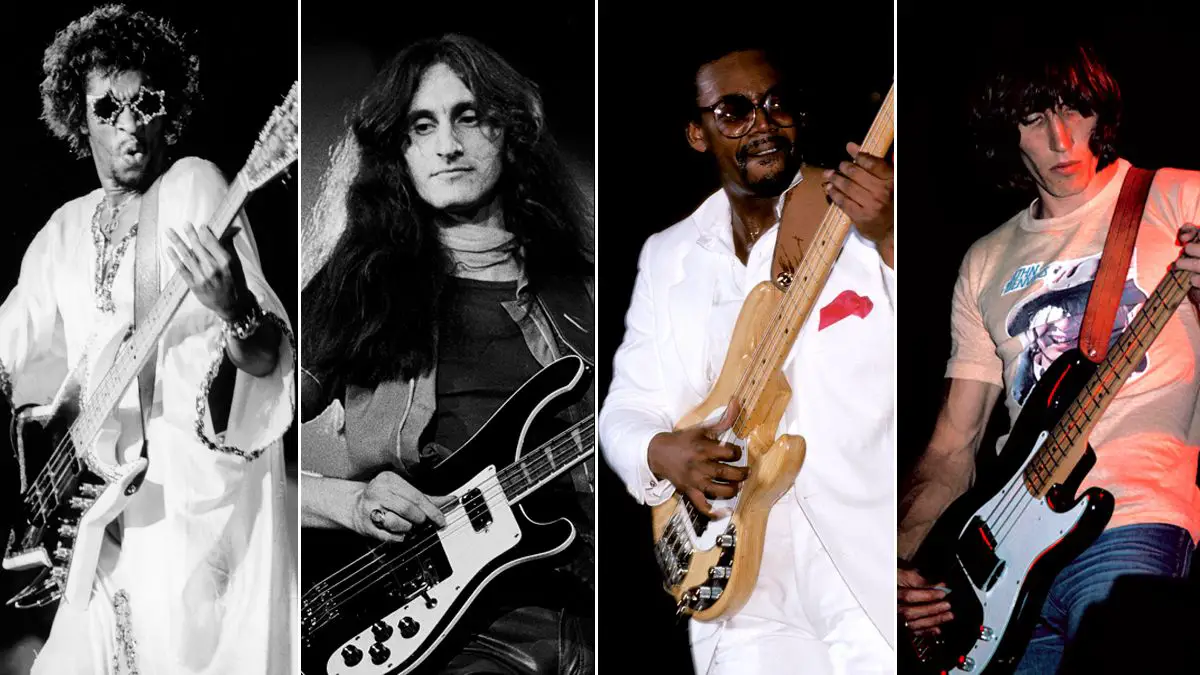The Best 1970s Bassists Of All Time Ranked
In 1972, Alembic established what became known as “boutique” or “high-end” electric bass guitars. These expensive, custom-tailored instruments, as used by Phil Lesh, Jack Casady, and Stanley Clarke, featured unique designs, premium hand-finished wood bodies, and innovative construction techniques such as multi-laminate neck-through-body construction and graphite necks. Alembic also pioneered the use of onboard electronics for pre-amplification and equalization. Active electronics increase the output of the instrument, and allow more options for controlling tonal flexibility, giving the player the ability to amplify as well as to attenuate certain frequency ranges while improving the overall frequency response (including more low-register and high-register sounds). 1976 saw the UK company Wal begin production of their own range of active basses. In 1974 Music Man Instruments, founded by Tom Walker, Forrest White and Leo Fender, introduced the StingRay, the first widely produced bass with active (powered) electronics built into the instrument. Basses with active electronics can include a preamplifier and knobs for boosting and cutting the low and high frequencies. In the mid-1970s, five-string basses, with a very low “B” string, were introduced. In 1975, bassist Anthony Jackson commissioned luthier Carl Thompson to build a six-string bass tuned (low to high) B0, E1, A1, D2, G2, C3, adding a low B string and a high C string. Here are the best 19070’s Bassists 70’s ranked.
See more: The Best Blues Rock Drummers Of All Time Ranked
See more: The Best Blues Rock Bassist Of All Time Ranked
20. Mike Rutherford

“One of the most underrated bassists of all time. For anyone who doubts me, listen to the Genesis albums from 1971-1976, he is incredible on EVERY single song. I think many underestimate Genesis as a band (since they started making pop in the 80’s) but their early albums are pure progressive rock. It’s maybe one of the best groups in that genre ever.”
19. Tony Levin
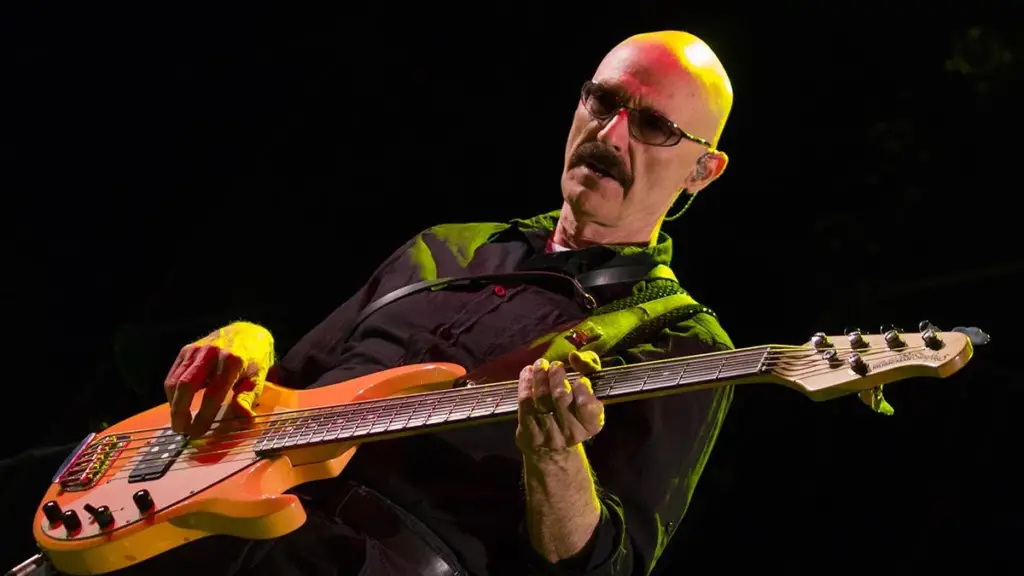
“Anthony Frederick Levin is an American musician and composer, specializing in electric bass, Chapman Stick and upright bass. He also sings and plays synthesizer. Levin is best known for his work with King Crimson and Peter Gabriel. Never mind his scary technique, imagination, innovation, great tone, clarity, articulation and ability to play Chapman stick – his note choices simply sound fantastic pretty well all the time.”
18. Lemmy

“Other people might have been better at playing, but Lemmy rocked harder than many other bassists dared to dream. Face of true speed metal and a complete badass. Ian may have passed on, but Lemmy is forever making the world of music a better place.”
17. Roger Waters

“As a bass player, he is often overlooked. Sure, he is not as flashy as others but he managed to create some of the most memorable bass lines in rock. He’s not as much of a virtuoso as John Entwistle but he can clearly hold his own even in the company of other greats. He’s wildly inventive and creative. He may not be in the top 5 skills-wise, but his playing always gets to your soul.”
16. Bootsy Collins
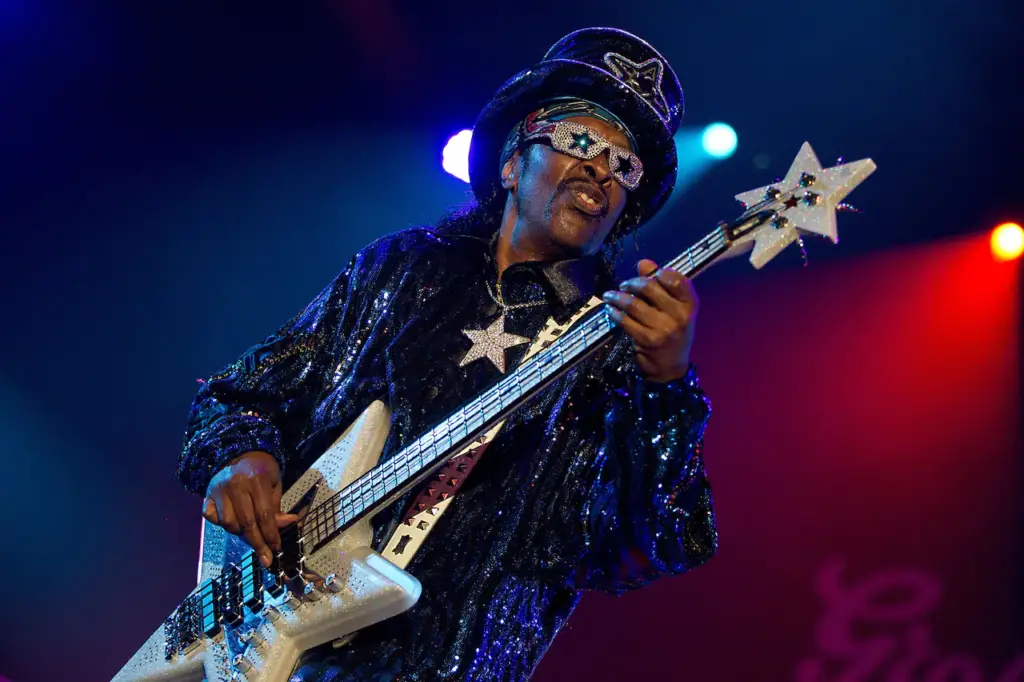
“William Earl “Bootsy” Collins (born October 26, 1951) is an American musician and singer-songwriter. Rising to prominence with James Brown in the early 1970s, and later with Parliament-Funkadelic, Collins’s driving bass guitar and humorous vocals established him as one of the leading names in funk. He is a member of the Rock and Roll Hall of Fame, inducted in 1997 with 15 other members of Parliament-Funkadelic. “
15. Greg Lake

“Gregory Stuart Lake was an English bassist, guitarist, singer, songwriter, and producer who gained prominence as a founding member of the progressive rock bands King Crimson and Emerson, Lake & Palmer. Keeping up with Keith Emerson was not for the weak… and he had the best voice to go with it.”
14. John Wetton
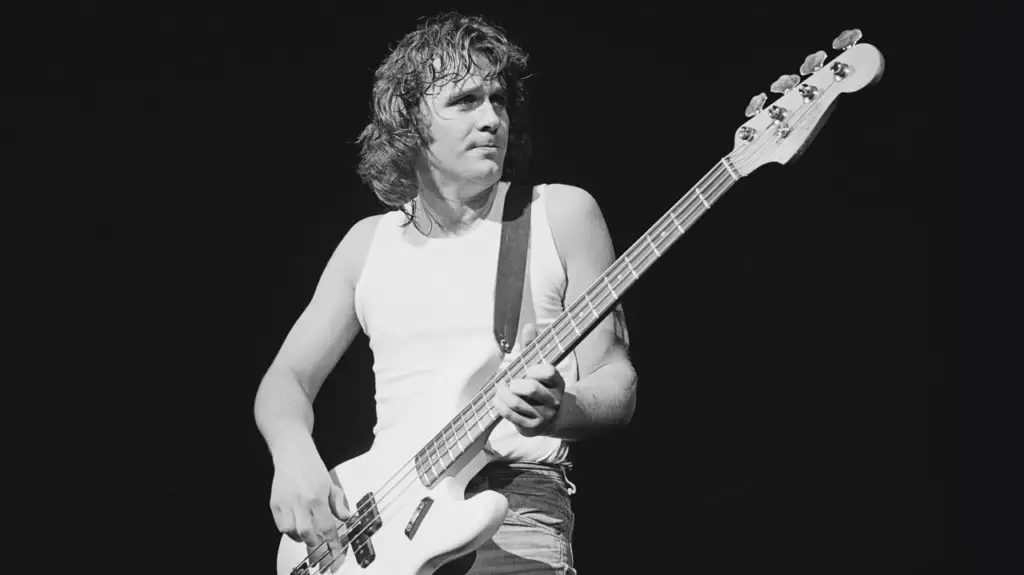
“If you haven’t heard “Starless” by King Crimson you have no right even to breathe around these kind of topics. And if you have you cannot pass the bass by. What it does in the end is beyond description. Yet it’s not about fast finger runs or any kind of virtuosity. It’s about depth and cosmic magnitude.”
13. Roger Glover

“Roger David Glover is a British bassist, songwriter, and record producer. Glover is best known as the bassist for hard rock bands Deep Purple and Rainbow. His sound and knowledge of doing what and when is great. He doesn’t like to show off when it’s not necessary but listen to “No, No, No” from the Fireball album or “Lazy”. Without him Deep Purple would never be what it is”
12. Benjamin Orr

“Benjamin Orzechowski, known as Benjamin Orr, was an American musician best known as a singer, bassist and co-founder of the rock band the Cars. The man had a golden voice and could play multiple instruments. It wasn’t his talent that impresses me most though. It was his genuine appreciation of fans and humbleness.”
11. Glenn Hughes
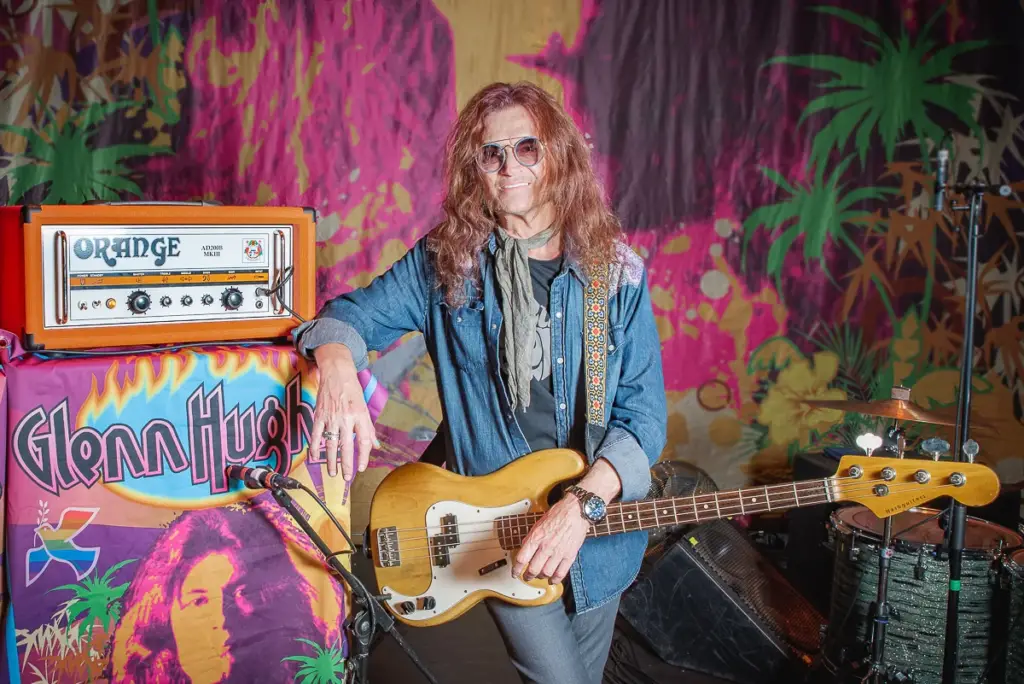
“Glenn Hughes is an English rock bassist and vocalist, best known as a member of Deep Purple and the rock pioneers Trapeze, and his solo career. Hughes was inducted into the Rock and Roll Hall of Fame as a member of Deep Purple. He is acclaimed for his wide vocal range.”
10. Stanley Clarke

“A bass soloist who works with his band, lets them play too. Saw him live. Mind blowing. Technically brilliant, musically creative and expressive. An absolute legend. If more people knew his name he would be #1 for sure.”
9. Phil Lynott

“Philip Parris “Phil” Lynott was an Irish musician, singer and songwriter. His most commercially successful group was Thin Lizzy, of which he was a founding member, the principal songwriter, lead vocalist and bassist. The quintessential frontman bassist,singer, songwriter, lyricist.
He played so melodically it was like an extra guitar and his audience interaction must have inspired folk like Freddy Mercury.”
8. Jack Bruce
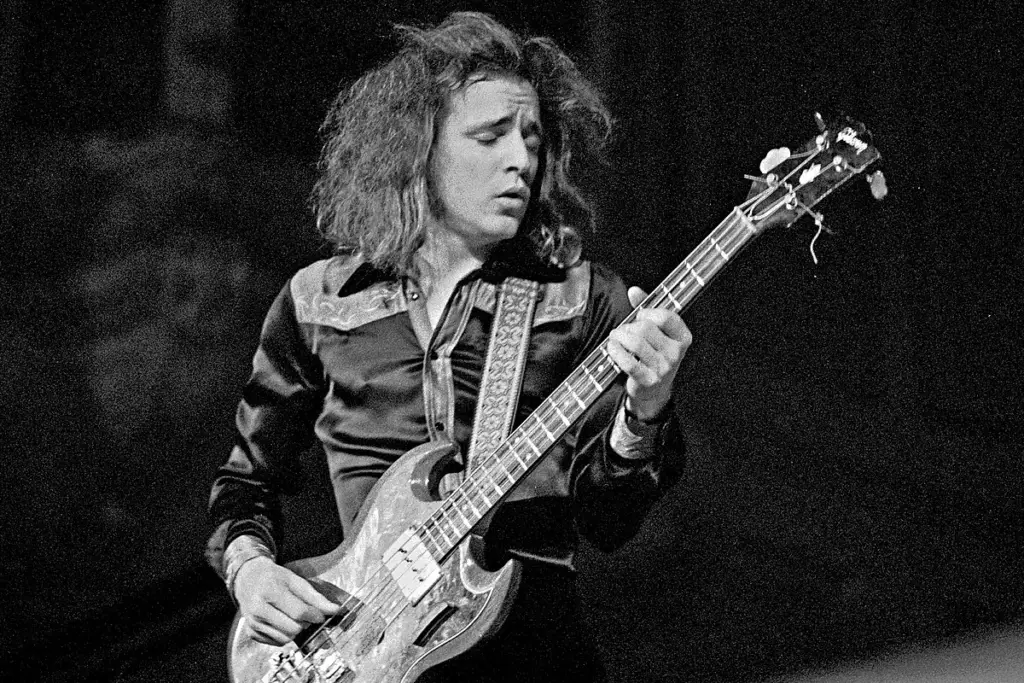
“Jack is the master. His incredible playing and ground-breaking sounds have influenced many of the other bass players listed here. His constant growth and change and adaptation to new ideas is apparent in everything he plays. His song writing and collaborations are always unique, powerful, and intriguing. And he’s still playing in many different venues and bands.”
7. John Deacon
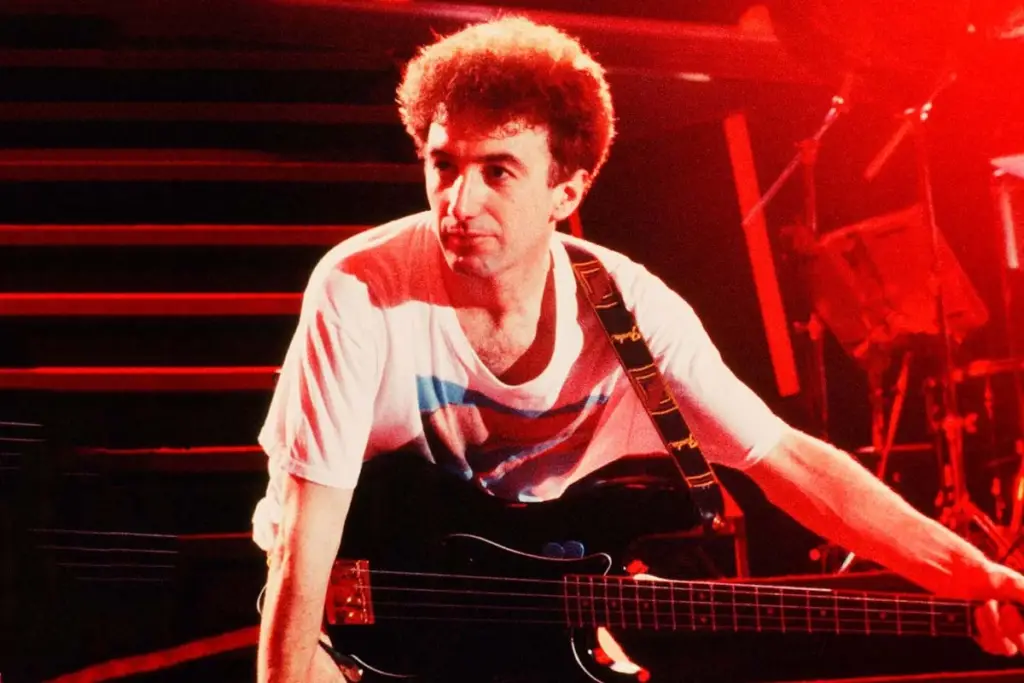
“He’s one of those rock legends who prefer to live low-key even though they’re already a household name. When we mentioned earlier about bassists content being in the background, we mostly referred to him. Even on stage, he lets other members bask in the glory of spotlight while he’s on the sidelines just doing his job. For many of Queen’s musical masterpieces, they wouldn’t see the light of day if it weren’t for Deacon’s bass lines. He may not be much of a show-off but he’s still crucial to the band.”
6. Geezer Butler
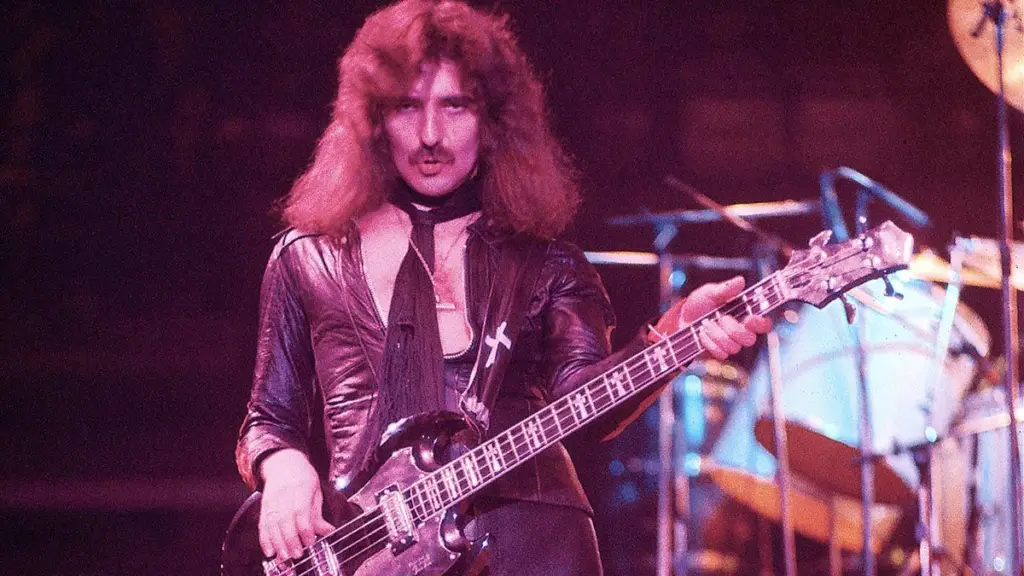
“Geezer Butler was more than a bass player, he was Black Sabbath’s primary lyricist too. Without him and his brilliance, we probably would’ve never heard some of their greatest pieces. Butler contributed much to the band’s heavy and aggressive sound. His bass lines are dark, moody, but melodic.”
5. Paul McCartney
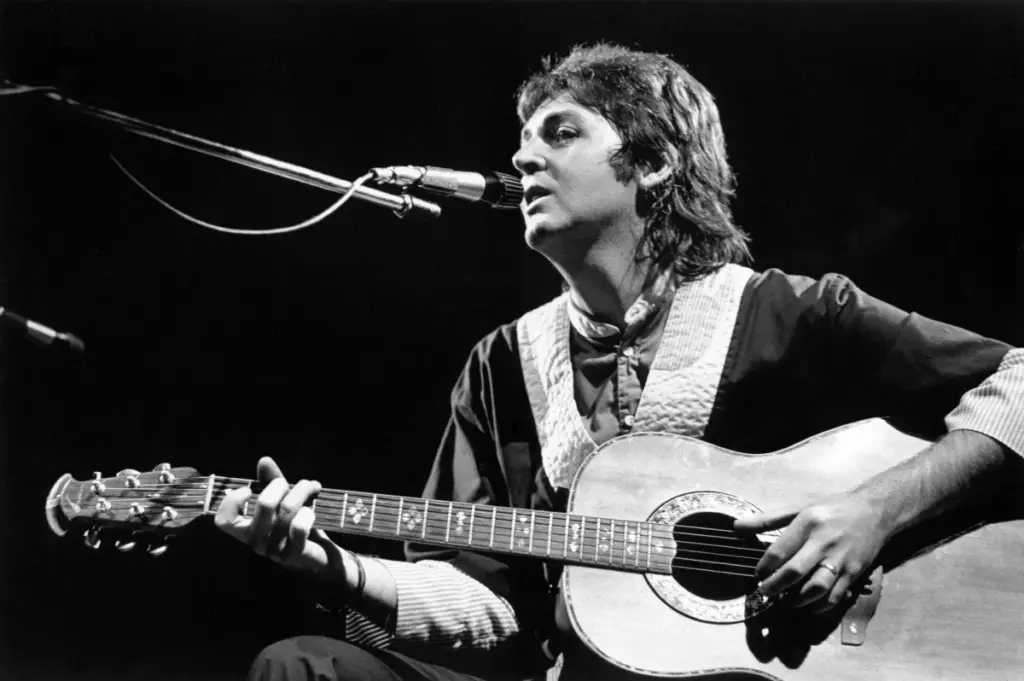
“McCartney is one of the most influential and innovative bass players of all time. Practically all of the others listed here are directly or indirectly influenced by McCartney’s clever bass lines. His sense of melody really gave the bass lines their own soul and completely changed the songs. His sense of timing created some really classic riffs.”
4. Chris Squire
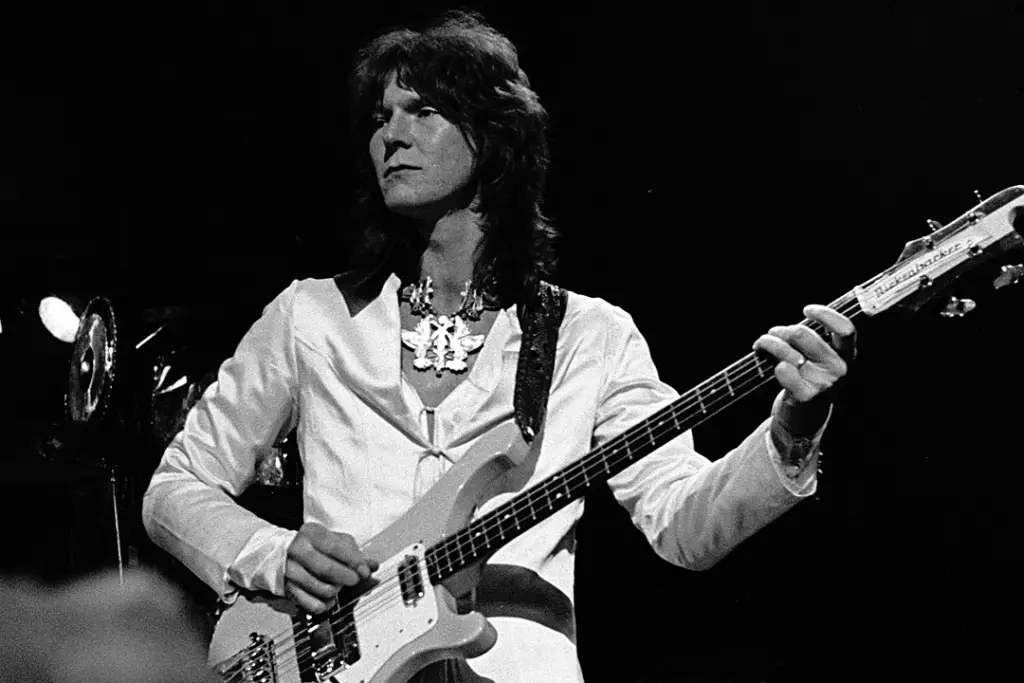
“Chris Squire took bass guitar to a level it never was. He combined power, counterpoint, rhythmic precision, timbre and sound contrast, he was innovative almost in every field. He’s the mastermind of great riffs and bass parts like “No Opportunity Necessary”, “Heart of the Sunrise”, “The Fish”, “Close to the Edge” Besides he was a brilliant composer, his solo album “Fish out of Water” is among the greatest of the era with superb use of the symphony orchestra.”
3. John Entwistle

“He often lands the top spot in every “greatest bass player” list and for good reason. He provided the backbone of The Who’s sound. He was often flanked by show-offs – both Keith Moon and Pete Townshend enjoyed being on the spotlight. But it never bothered Entwistle. Besides, he knew how crucial his work was and he simply elevated the virtuosity of his bandmates. He let his music speak for him.”
2. John Paul Jones

“Jones was a solid bassist who had a few impressive performances but that doesn’t mean he should be near the top 20 bassists of all time. There are so many more skilled bassists who are better composers and players all around. All of his stuff is really simple with the exception of The Lemon Song.”
1. Geddy Lee

“Here’s the thing that separates Geddy Lee from others – he’s the bassist, keyboardist, and lead vocalist for Rush. He basically juggled three duties but still managed to do a spectacular job of each one. As a bass player, he never stopped learning and improving. He was always getting better and better. No one who saw him play live ever left disappointed. He incorporates techniques that’ll make you think, “How?” That raw talent is hard to beat.”

